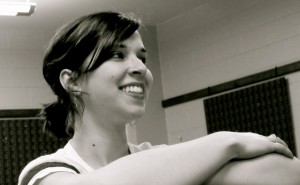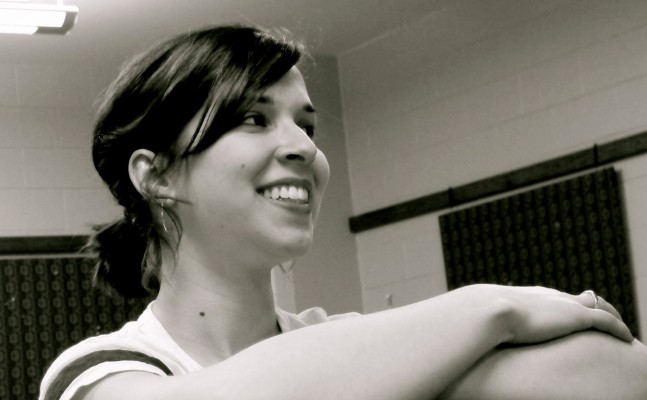
As I have reflected on attachment theory in recent weeks, attachment seems to be adept at stirring up emotion in people. Perhaps because it gets to a core element of who were are as human beings, a core element that often puts us in a position of vulnerability and can take us back to places of deep hurt and pain, or in contrast, places of deep love and joy. I too can easily find myself thinking back to those people, places, and times where connection with others has left its mark.
In addition to the emotion-filled memories, attachment theory also has the ability to bring me to a state of cognitive dissonance. Not one in which I am left paralyzed by the very shaking of my world, so to speak, but rather a to state filled with pondering and dreaming.
Having been born and raised in the United States, my mainstream culture has engrained in me ideals very contrary to concepts of attachment. As Craig Shealy articulated in his breakout session at EMU’s Attachment Conference, “human beings will acquire the belief systems that are available for acquisition.” His session was entitled “Attachment in Core Beliefs and Values: Implications for Self, Others, and the World.” Although exceptions can likely be found, this statement operates out of the belief that we do not come to believe something which has not already been made available to us in one fashion or another.
As far as prescribers of attachment theory are likely concerned, my ray of hope against an individualistic culture has come in the faith tradition I was exposed to from the start of life. From my immobile, diaper-filled days in Sunday School, I was learning about a way of life centered on connection with not only my God but also with the world around me.
So here I am as an adult, living in a culture debatably becoming more and more focused on “me”, but increasingly feeling like an alien within it. As a follower of Christ and as a peacebuilder, my worldview does not include getting ahead at the cost of others or pursuing my own interests only to isolate myself from others. But as the dreamer and optimist that I also am, I’m not inclined to give up on my culture and write it off as a lost cause.
Here enters my cognitive dissonance, my pondering and dreaming: What American culture has taught me and what has become my innate perspective on human connection are in opposition to one another. What happened along my journey that has left myself and likeminded others in a position of differentiation from what we encounter on a daily basis? Is it really that being genuinely connected with others is a way of life unattainable for Americans, or is it that what’s hardwired in all humans is somehow being suppressed? What is stopping us from living with one another, rather than just existing together? How can that be changed and how would the landscape of conflict be changed in our world as a result of an American shift in how we view relationship?
Questions, ponderings, and dreams. Questions that today, I have very few answers for. Thoughts I will continue to ponder. Dreams I will continue to dream. Perhaps one day, actions we will be able to take, together.

Very interesting and will written reflection. I wish I have the time to write. I think You touched on a multiple issues in this reflection. The most important, in my point of view, is the question of culture. I didn’t understand the meaning of culture, although you did elaborate on being a peacebuilder and a follower of Christ. Two questions that emerged from my reading to your reflection:
1- How do you define culture?
2- Is there is really anything called American Culture? How would you describe that?
I asked because I am struggling with the same questions, mainly number 2.
Thank you for the courage to put this wonderful post together.
Excellent Work
You already heard me say this over e-mail, Chelsea, but now publicly: well-done! :)
Raad, I did a study on American Christianity and culture last fall and relied heavily on the work of sociologist, James Davison Hunter, in his book To Change the World: The irony, tragedy, and possibility of Christianity in the late modern world. He articulates 11 points about culture and culture change that may help your wonderings in re: culture…
On culture:
1) Culture is a system of truth claims and moral obligations
2) Culture is a product of history
3) Culture is intrinsically dialectical
4) Culture is a resource and, as such, a form of power
5) Cultural production and symbolic capital are stratified in a fairly rigid structure of “center” and “periphery”
6) Culture is generated within networks
7) Culture is neither autonomous nor fully coherent
On cultural change:
1) Cultures change from the top down, rarely if ever from the bottom up
2) Change is typically initiated by elites who are outside of the centermost positions of prestige
3) World-changing is most concentrated when the networks of elites and the institutions they lead overlap
4) Cultures change, but rarely if ever without a fight
This is quoted from section headings, pgs. 32-44. If you want to see my full paper on the matter, here’s the link: http://restorativetheology.blogspot.com/2010/12/radical-biblical-and-cultural.html
So to quickly answer your two questions, 1) it’s hard to define culture which is mostly why I like the points that Hunter makes above, and 2) No, I don’t think there’s an abstract “thing” called “American Culture” that’s unchanging and timeless. It’s more like a moving, morphing, living thing that has history and character, and is written onto and enacted by American people, and then acted back upon, and also spread around the world in various ways (for better and worse).
Hope that’s helpful!